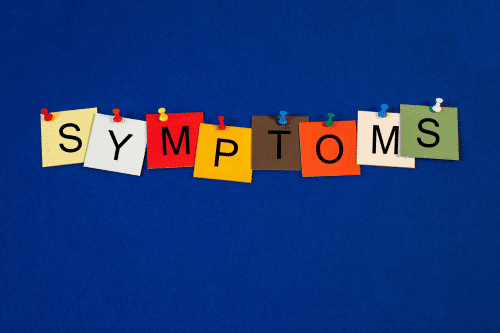Ethanol Abuse: Understanding, Symptoms, and Solutions
Understanding Ethanol
What is Ethanol?
Ethanol, or ethyl alcohol, is a chemical compound commonly found in alcoholic drinks such as beer, wine, and spirits. Its chemical formula is C₂H₆O, and it is produced through the fermentation of sugars. While ethanol is used in social and industrial settings, its excessive consumption can lead to harmful effects on the body and mind.
Role of Ethanol in Society
Ethanol plays a significant role in social situations, being the primary type of alcohol found in beverages. Moderate drinking may have minimal health consequences, but chronic alcohol abuse or heavy drinking can lead to serious health conditions like liver damage and heart disease.
Distinction Between Ethanol Abuse and Alcoholism

Defining Ethanol Abuse
Ethanol abuse refers to excessive alcohol consumption, often for purposes beyond social use. This form of misuse can result in negative consequences such as alcohol intoxication, alcohol poisoning, or alcohol dependence. Unlike alcohol addiction, ethanol abuse does not always involve physical dependence or severe withdrawal symptoms.
Defining Alcoholism
Alcoholism, also known as alcohol use disorder (AUD), is a chronic disease characterized by a strong urge to drink despite adverse outcomes. This disorder often includes alcohol craving, physical dependence, and unsuccessful attempts to quit. The diagnosis of alcohol drinking issues requires assessment of drinking patterns and their impact on daily life.
Key Differences in Symptoms and Treatment
The distinction lies in the severity and persistence of symptoms. While ethanol abuse might result in short-term effects like risky behaviors, alcohol use disorder often includes long-term effects like brain damage, liver diseases, and mental health issues. Treatment for alcoholism often involves behavioral therapies, medication-assisted treatment, and support groups like Alcoholics Anonymous.
Symptoms of Ethanol Abuse

Behavioral Changes
- Increased risk of dangerous situations like drunk driving
- Neglecting responsibilities in daily life
- Recurrent alcohol use despite interpersonal or work-related problems
Physical Symptoms
- Irregular heartbeat
- Liver damage, including fatty liver disease
- Symptoms of alcohol intoxication, such as slurred speech
Psychological Symptoms
- Mental disorders like anxiety or depression
- Cognitive effects such as impaired decision-making
- Strong urge to consume alcoholic drinks in large amounts of alcohol
Diagnosis of Ethanol Abuse

Diagnostic Criteria
Healthcare professionals, guided by the National Institute on Alcohol Abuse and Alcoholism, evaluate signs of ethanol abuse using tools like medical records and biomarkers of alcohol misuse. These criteria include excessive alcohol consumption over an extended period and its impact on physical and mental health.
Tools and Assessments
Tests like blood alcohol concentration (BAC) and evaluations by health professionals are key. The abbreviation for ethanol (EtOH) is often used in medical supervision and healthcare settings.
Long-Term Effects of Ethanol Abuse
Health Consequences on the Body
- Liver diseases, including cirrhosis and fatty liver
- Increased risk of heart disease and types of cancer
- Damage to the heart muscle, leading to heart attacks
Mental Health Implications
- Heightened risk of bipolar disorder and mental health issues
- Long-term effects of ethanol abuse on cognitive functioning, including brain damage
Impact on Relationships and Social Life
- Strained relationships due to aspects of addiction
- Isolation from social groups due to adverse consequences of excessive drinking
- Professional challenges caused by poor performance and negative consequences
Treatment Options for Ethanol Abuse
Behavioral Therapy
Cognitive-behavioral therapy (CBT) is effective in identifying triggers and managing alcohol craving. Family therapy can help repair relationships strained by alcohol misuse.
Medication-Assisted Treatment
Medications like naltrexone and acamprosate, under medical supervision, reduce withdrawal symptoms and alcohol dependence.
Support Groups and Community Resources
Programs like SMART Recovery and Alcoholics Anonymous offer peer support. Facilities like Renaissance Recovery and Wellness Retreat Recovery provide evidence-based treatment in a safe environment.
Preventive Measures Against Ethanol Abuse
Education and Awareness
Educational campaigns by organizations like the National Institutes of Health emphasize the harmful effects of ethanol misuse. Raising awareness about the effects of ethanol on the human body can discourage excessive alcohol intake.
Responsible Drinking Practices
Guidelines suggest limiting drinks per day—one for women and two for men—to avoid alcohol poisoning and chronic abuse. Reducing drinks per week can minimize health consequences like high blood pressure and fatty liver disease.
Family and Community Support
Strong family bonds and supportive communities help mitigate environmental factors contributing to chronic ethanol abuse. Access to health insurance and healthcare providers ensures access to addiction treatment programs.
Ethanol abuse is a complex issue with serious implications for the body, mind, and relationships. Recognizing the signs early and pursuing effective treatment—including behavioral therapies and outpatient treatment—can lead to a happier life and a successful recovery process.
Start Your Recovery with Opus Treatment’s Alcohol Detox Program
At Opus Treatment, we understand the challenges of overcoming ethanol abuse and the profound impact it can have on your life, health, and relationships. Our alcohol detox program provides a safe and supportive environment under medical supervision, designed to help you manage withdrawal symptoms and begin your path to recovery. With a combination of evidence-based therapies, compassionate care, and access to resources like cognitive-behavioral therapy and family therapy, we are committed to helping you achieve lasting sobriety. If you or a loved one is struggling with alcohol abuse, reach out to Opus Treatment today to start your journey toward a healthier, happier future.
FAQ's
Ethanol abuse refers to the harmful use of ethyl alcohol, often involving excessive drinking that leads to negative physical, mental, or social consequences. It may not always involve physical dependence or addiction. Alcohol addiction, or alcohol use disorder (AUD), is a more severe and chronic condition characterized by an inability to control alcohol consumption, even when it causes significant harm. Recognizing the difference is crucial, as the treatment approaches for each may vary.
The symptoms of ethanol abuse can manifest in several ways. Behavioral signs include neglecting responsibilities, engaging in risky behaviors, or experiencing strained relationships due to excessive drinking. Physical symptoms may include liver damage, poor coordination, and an irregular heartbeat. Psychological symptoms such as mood swings, anxiety, or depression are also common. Early recognition of these symptoms can help prevent long-term damage and encourage individuals to seek help.
An alcohol detox program is the first step in addressing ethanol abuse or addiction. During detox, the body eliminates alcohol, which may result in withdrawal symptoms such as nausea, anxiety, insomnia, or, in severe cases, seizures. At Opus Treatment, our alcohol detox program provides medical supervision to ensure safety and comfort during this process. Patients receive tailored support, including medications to manage symptoms and therapeutic interventions to prepare for the next stages of recovery.
Supporting a loved one struggling with ethanol abuse requires compassion and understanding. Start by learning about alcohol misuse and its impact on the body and mind. Encourage them to seek professional help, such as the alcohol detox program at Opus Treatment. Avoid enabling their behavior by setting boundaries and offering support in a way that promotes recovery. Joining support groups or seeking guidance from a healthcare professional can also equip you with the tools to help effectively.




